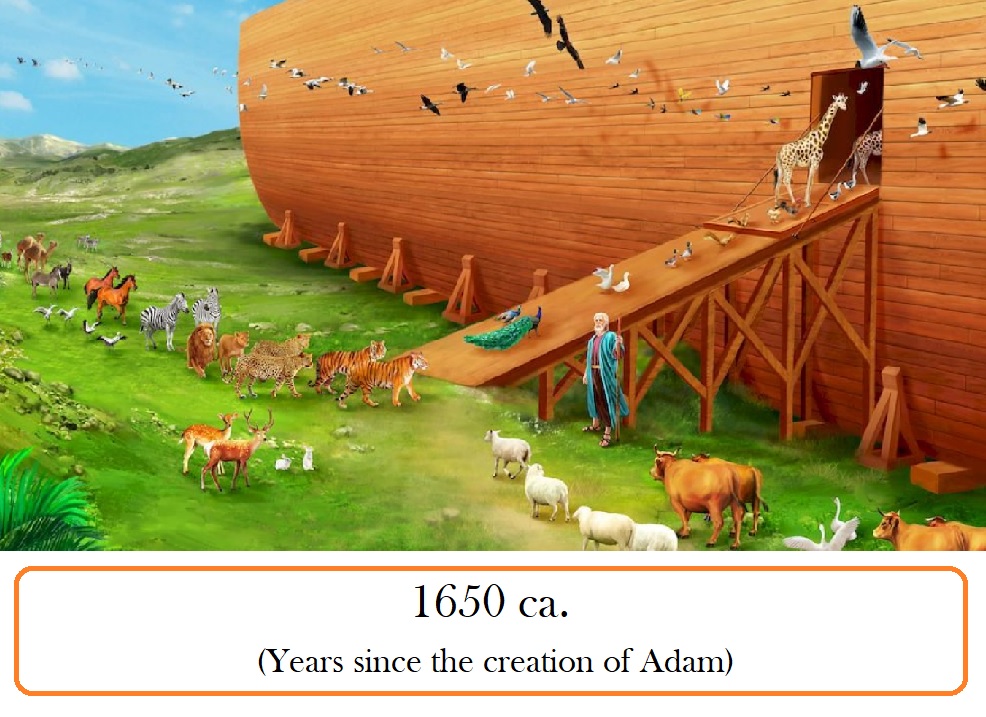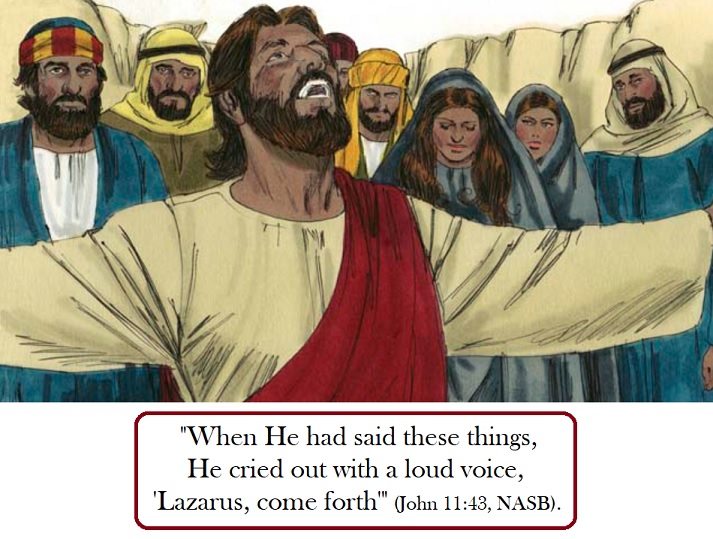“Go therefore and make disciples of all the nations…teaching them to observe all that I commanded you; and lo, I am with you always, even to the end of the age” (Matthew 28:19-20, NASB).
——————–
Contents:
1) Encouragement (Steven Harper)
2) News & Notes
——————–

-1-
Encouragement
Steven Harper
Previously, we considered the problem of discouragement, which [by definition] is depriving one of courage; this week, let us consider its opposite: encouragement. Encouragement, by definition, is to inspire with courage. It means to stimulate by assistance, approval, etc. It is, again, the opposite of discouragement and we can hopefully see which state is more preferable to the child of God, a disciple of Jesus Christ. And, we hopefully can see which we should be trying to do for others! Surely there are enough reasons for discouragement in this world without brethren adding to the problem; we need more brethren who are willing to do their part in encouragement.
In spiritual matters, encouragement might be heard more often as other terms: edification and exhortation. And on this, the Scriptures teach us some important points about the place of the necessary edification and exhortation and what we can do to be edifiers and exhorters, rather than those who discourage. As Christians, we are all striving to get to heaven and, while here on earth, do the things that are pleasing to God and abstain from the fleshly desires. But we also understand that the life of a disciple is not always easy. Sometimes we will get discouraged because things are a little harder than we may have first imagined; sometimes we are discouraged by the behavior of our brethren; sometimes we are discouraged by our own inability to live as we desire and we fail to attain our goals; and sometimes we just do not have enough information to be able to give difficult answers. It is then that we need our brethren to do their part in building us up in the faith and giving us the boost we need to continue as we should. But how is this to be done? Let us let the Scriptures tell us!
First, the Need. Last week, we addressed the erroneous idea that some have that discouragement should be absolutely foreign to the mind of a Christian — and, particularly, how it is an erroneous idea. The fact is, some brethren do get discouraged. Whether we want to admit it or not does not change the fact of the matter, and it would be utterly ridiculous to argue the matter if a brother in Christ told you that he was discouraged and you insisted he just couldn’t be because, well, Christians just don’t do that! [Meanwhile, he wallows in his state of discouragement while you are arguing over the very possibility.] And Scripture tells us that there is a need and, if there is a need, that means it does happen. Paul urged the Roman brethren to “pursue the things which make for peace and the things by which one may edify another” (Romans 14:19 ). Why worry about edifying if there is no need? The necessary implication is there is a need.
The writer of Hebrews — writing to the first-century Jewish Christians who had already suffered persecutions and who were contemplating abandoning the faith and making a return to following the Old Law — pointed to the great need of encouragement for those who were soul weary and discouraged by the fight in which they were involved. To them he wrote, “Therefore strengthen the hands which hang down, and the feeble knees, and make straight paths for your feet, so that what is lame may not be dislocated, but rather be healed” (Hebrews 12:12,13). More than ever, these brethren needed someone to encourage them to hang on and dig in and not abandon the faith by which they would be saved. There was a clear need, and to ignore it would have proved disastrous for those affected. Let us admit that there may be some today who face some difficult hurdles in their spiritual lives and who could use the encouraging words of those who have walked the same path. So, what words do we speak to them?
Point them to the Word of God. The apostle Paul, as he was about to depart from the Ephesian elders who had met him in Miletus, said, “So now, brethren, I commend you to God and to the word of His grace, which is able to build you up and give you an inheritance among all those who are sanctified” (Acts 20:32). After giving them a very serious charge to watch out for the souls of the brethren and to be alert to the “grievous wolves” who would soon enter into the flock, he pointed them to the answer for the coming dangers and that which would be the very source of encouragement to fight the good fight: the Word of God! Today, we have elders who — far too often — pick up the latest best-seller and the writings of popular “Christian” authors [who are not true followers of Christ at all] and give this to their flock as words of encouragement, rather than the Word of God. Why is this? Do we not trust that the divinely-inspired Word of God is sufficient? Is it that the leadership does not believe that God’s Word is “up to date” with our modern society? Has the Bible become irrelevant, at least in the minds of those who lead us? If so, that ought to tell us where the church will be heading in the near future — and it won’t be in the direction of heaven!
It is in the word of God that we read story after story of those who have walked the paths of faith and who have suffered greatly for their faith — and who have been crowned with eternal life as a reward. It is there that we read of faithful men who neared the end of their earthly life but who still looked forward — to the promised reward and of eternal life in heaven with the Savior (II Timothy 4:7, 8). It is there that we read of those who have unashamedly believed the promises of God and trusted Him enough to obey without question and who were rewarded with the praise of God and, now, the eternal rest (Hebrews 11). When brethren today need encouragement, there could be no greater source than God’s Word. Don’t overlook the positive influence it may have on those who are weary and heavy-laden, and who seek the rest for their souls.
Remind them they can do it. When anyone is feeling overwhelmed or feels like they cannot, by themselves, deal with the pressures they face, we should remind them that — as a Christian — they can do it. When the apostle Paul was in prison because of his faith, he wrote to the brethren to encourage them to “stand fast” in the faith (Philippians 1:27) and considered even that his own imprisonment was a positive thing (Philippians 1:14). He was right! [Read Philippians 1:13 and then Philippians 4:22; some of the palace guard must have been convinced and converted by Paul while they guarded him!] But in this letter to the Philippian brethren, he could say with all certainty, “I can do all things through Christ who strengthens me” (Philippians 4:13). We would do well to remember that, too, and we would do much good if we reminded the ones who are discouraged. What words of encouragement — to hear that we can do all things!
Or is it that we really do not believe those words? Why would we allow someone to dwell in their state of discouragement when we have such potentially-powerful words? Why not speak those words and build them up in the faith instead of letting them wallow in discouragement? If an imprisoned man who faced the possibility of death for his faith can find encouragement in those words, how about you?
Step in and lend a hand. If you remember, part of the definition of encouragement is to stimulate by assistance. In other words, you can encourage someone by simply lending a hand! Remember Elijah, when he felt like “he alone was left” in all Israel? Remember the words of God, how He told Elijah that he was not alone? And what if good old Barnabas [whose name means “son of encouragement”] had never stepped in to speak up on behalf of Saul (Acts 9:26, 27)? Today, when we feel discouraged because we feel like we are overwhelmed with the work of God or just life, in general, it does immeasurable good when someone steps up and says, “Here, let me help you.” Sometimes, all we need to hear is that someone is there and that someone cares.
Will you be that one?
— Via Articles from the La Vista church of Christ
——————–
-2-
News & Notes
Folks to be praying for:
Rick Cuthbertson, as he is on new medication and receiving 5-hour infusions every 3 weeks as treatments for the cancer that has increased on his lung.
Lois Fletcher, who has been receiving homeopathic treatments for bone cancer.
Ronnie Davis, who has now been on new medication, along with continual oxygen for a few weeks, due to an illness not yet determined.
Deborah Medlock, whose excessive coughing and nausea might be due to a nodule in her throat.
Tammy Griffey, who still needs to keep weight off her foot as her ankle heels, over the next few months, from the surgery performed on it.
Danielle Bartlett, as she continues with home dialysis and awaits a donor kidney.
Let us also be remembering in prayer Jim Lively, Rex Hadley, Vivian Foster, Kayla Williams, and Kim Rowell.
——————–
The Steps That Lead to Eternal Salvation
1) Hear the gospel — for that is how faith comes (Rom. 10:17; John 20:30-31).
2) Believe in the deity of Jesus Christ, the Son of God (John 8:24; John 3:18).
3) Repent of sins. For every accountable person has sinned (Romans 3:23; Romans 3:10), which causes one to be spiritually dead (Ephesians 2:1) and separated from God (Isaiah 59:1-2; Romans 6:23). Therefore, repentance of sin is necessary (Luke 13:5; Acts 17:30). For whether the sin seems great or small, there will still be the same penalty for either (Matt. 12:36-37; 2 Cor. 5:10) — and even for a lie (Rev. 21:8).
4) Confess faith in Christ (Rom. 10:9-10; Acts 8:36-38).
5) Be baptized in water for the remission of sins (Mark 16:16; Acts 2:38; 22:16; 1 Pet. 3:21). This is the final step that puts one into Christ (Gal. 3:26-27). For from that baptism, one is then raised as a new creature (2 Cor. 5:17), having all sins forgiven and beginning a new life as a Christian (Rom. 6:3-4). For the one being baptized does so “through faith in the working of God” (Col. 2:12). In other words, believing that God will keep His word and forgive after one submits to these necessary steps. And now as a Christian, we then need to…
6) Continue in the faith by living for the Lord; for, if not, salvation can be lost (Matt. 24:13; Heb. 10:36-39; Rev. 2:10; 2 Pet. 2:20-22).
——————–
Tebeau Street
CHURCH OF CHRIST
1402 Tebeau Street, Waycross, GA 31501
Sunday: 9 a.m. Bible Class and 10 a.m. Worship Service.
We also have a Song Service at 5 p.m. for every first Sunday of the month.
evangelist/editor: Tom Edwards (912) 281-9917
Tom@ThomasTEdwards.com
https://thomastedwards.com/go/all.htm/ (This is a link to the older version of the Gospel Observer website, but with bulletins going back to March 4, 1990.)








